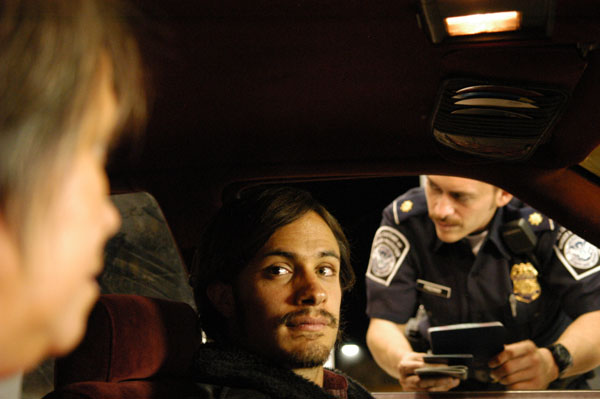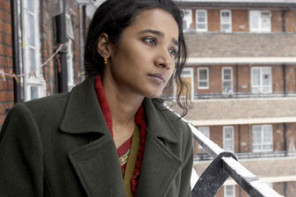Finally, brothers, whatever is true, whatever is noble, whatever is right, whatever is pure, whatever is lovely, whatever is admirable—if anything is excellent or praiseworthy—think about such things. (Phil 4:8)
After watching Alejandro González Iñárritu’s 2006 thriller Babel the other night, I was curious about the kind of reviews it received. Interestingly, many of the negative reviews focused on the film’s unflinching portrayal of human evil that was, in their view, pointless and gratuitous. After sifting through several of these kinds of reviews, I wondered what Christians thought of the film. After all, the title does betray a debt to a Biblical story. I was not altogether surprised to find that many Christian responses to the film were negative, and that they, likewise, cited the disturbing content. But these reviews, unlike the “secular” reviews, included a moral imperative: Christians should not watch this movie because its content is offensive.
Should Christians watch a movie filled with sex and violence? When we look at these kinds of images, do we sin, or are we tempted to sin? The above verse is often marched out to encourage Christians to avoid movies like Babel. Of course there are things that Christians should not watch; looking is not morally neutral. But then it occurred to me that Babel offered its own answer to this problem, and that those who avoided or walked out on the movie would never hear it. [Spoilers coming!]
Babel is the interweaving of four stories that occur in four different languages and in four different countries. Story 1: Susan Jones is shot while on a trip to Morocco with her husband after the death of their youngest child. Story 2: Two Moroccan boys are the happy recipients of a rifle and accidentally shoot Susan Jones. Story 3: A Japanese businessman (and previous owner of this remarkable rifle) is having a rough patch with his deaf-mute daughter who is looking for acceptance in all the wrong places. Story 4: Unexpectedly, the Jones’ children accompany their nanny to her son’s wedding in Mexico.
Needless to say, the stories are complicated and fragmented, much like each of the characters they are about. But as the disparate strands weave together, some of the characters begin to find a measure of redemption and hope, while others fall into despair and darkness. Interestingly, both story 1 and story 3 chart a path from brokenness to redemption, but the other two end in tragedy. And yet, they form a single narrative.
This complex web of stories shows how redemption and tragedy can be interrelated to such an extent that it may not be possible to have one without the other. In a truly remarkable scene, Richard Jones struggles to help Susan, weak and crippled, to relieve herself in a pan, and it is there that they find forgiveness as they open themselves to each other again. “Praiseworthy” things are rarely, if one digs deeply enough, isolated from tragedy. In the face of despair, this film reminds us that redemption is a matter of wrestling hope and meaning out of evil and destruction. Redemption is, as Charles Williams puts it, seeing the evil as good. In response to the question “should Christians watch dark movies?” Babel replies that darkness is all around, and that we cannot truly see the good if we do not also see the bad.







I agree with you, Jim, and think that Babel is a great example of how verses like Phil 4:8 are easily abused when it comes to Christian engagement in the arts. I love your comment that “Praiseworthy things are rarely, if one digs deeply enough, isolated from tragedy.”
I am sure that you would agree, however, that watching this movie take a certain level of maturity. This makes it difficult to know, for example, if parents could recommend this film to their teenage children. Of course, this takes discernment based on the maturity of individual teenagers, or adults for that matter.
Thanks again for this encouragement to engage with the bad in which the praiseworthy emerges as a beautiful alternative!
Thanks for your comment Wes. I should definitely be clear that this film is filled with a lot of very difficult material: sex, violence, drugs, and suffering. I would be very hesitant to recommend this film to anyone without first making that disclaimer. This is actually one of the reasons I wanted to write this: perhaps not everyone has to sit through such a dark film in order to get something of the point it is trying to make.
This is a film that is in part about how we fail to communicate and how we fail to understand not only with people in other cultures but also with people just around the block. This is the story of one family and how miscommunication and a lack of understanding spirals out into tragedy. Told in a disjointed manner that alters the time frame we have four stories: A family in Morocco who get a gun to protect the sheep they herd, A couple on vacation in the same country which has its vacation shattered by a shooting, the children of the couple who take a trip with their housekeeper to Mexico, and a seemingly unconnected story of a Japanese father and daughter. Thats what happens in simplistic terms. What happens on the screen is an often rending tale of how life connects us all in weird ways that we can’t always explain. Its a beautiful movie to look at and is magnificently acted.
Unfortunately this viewer was bored silly by it. Pretentious to the point of silliness this is a movie that is going to spell out its premise over and over again. Yes, we can’t communicate (and if it isn’t clear one of the characters is deaf), yes we are all connected, yes this will lead to tragedy. Thank you for pointing it out for us, but did you have to do it for almost two and a half hours? Don’t get me wrong there is a good story in this movie, but the way the director has chosen to tell it, out of order with the grafting on of the Japanese portion of the film, it all becomes lost. Its an attempt to add some emotional and intellectual weight to a story that doesn’t need it. I walked out of the the film admiring it and what it was trying to do, but not liking it much at all.